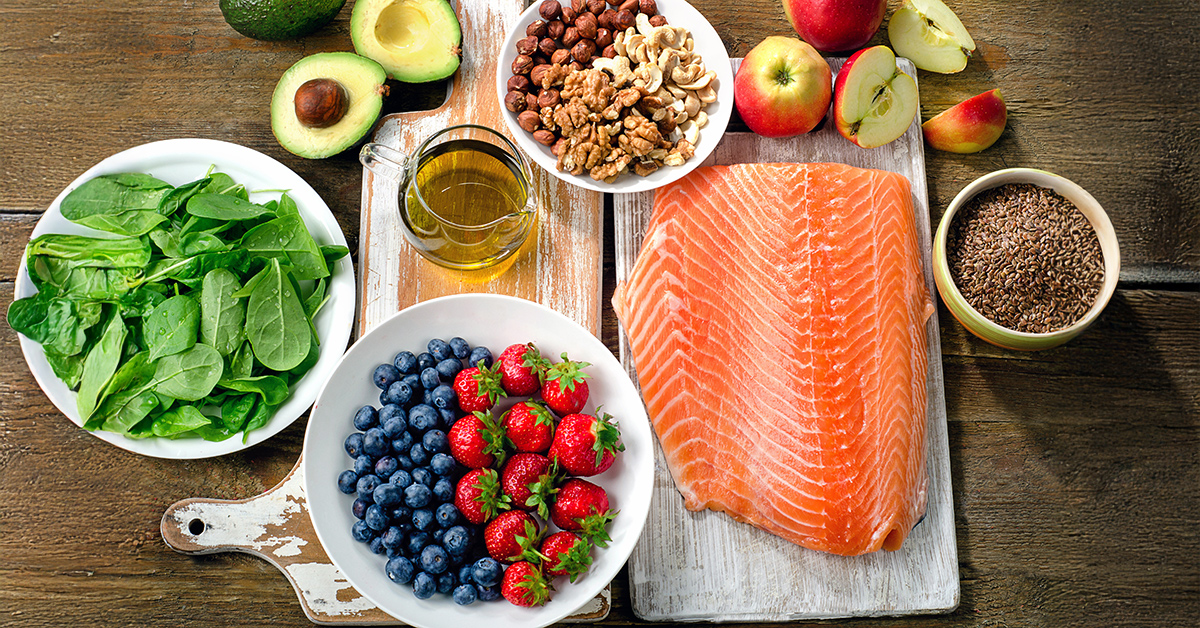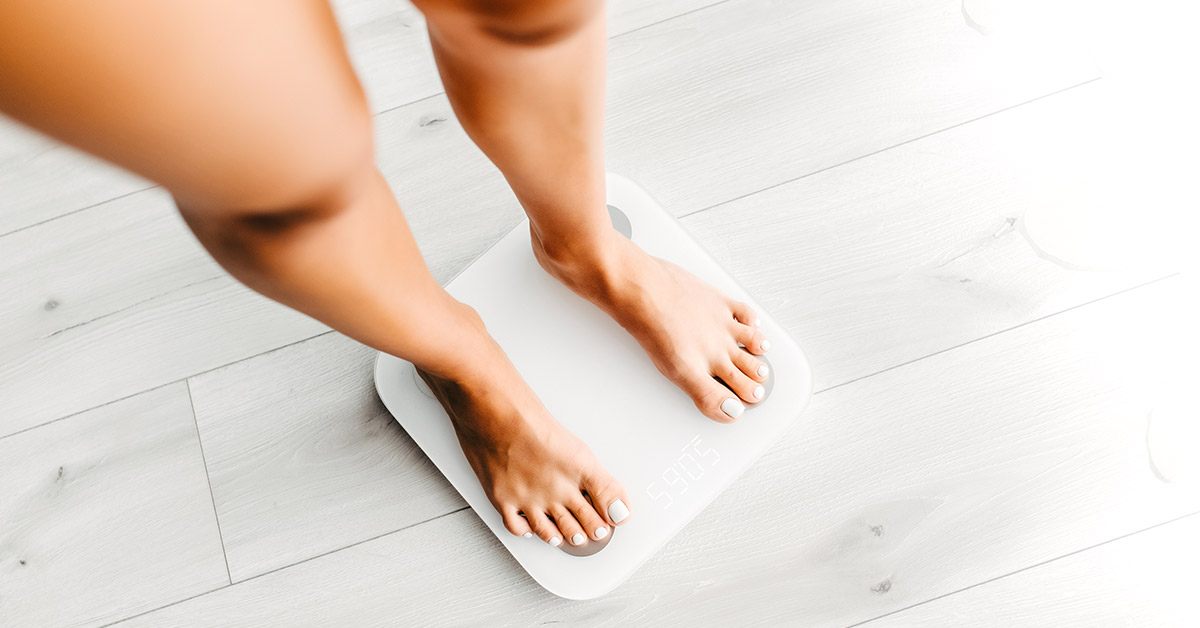
Key Takeaways
- A calorie deficit tailored to your health, lifestyle, and budget ensures sustainable weight loss, as up to 50% of people regain weight within two years without personalization.
- Consuming 25-45% of calories from protein and at least 20 grams of fiber daily helps boost satiety, reduce cravings, and increase metabolism for effective weight loss.
- Combining aerobic and resistance training with daily activities, such as walking or cleaning (NEAT), enhances calorie burning and supports long-term weight maintenance.
- Stress management techniques, such as meditation and deep breathing, can nearly double the reduction in BMI by curbing emotional eating and balancing appetite hormones.
- Medical interventions like GLP-1 medications and bariatric surgery can be effective for individuals with obesity or weight-related conditions who have not succeeded with diet and exercise alone.
Losing weight is tough. We call it a “weight loss journey,” but “weight loss trek” may be more accurate. It’s a time filled with new restrictions and habit changes. And, some research shows that up to half of people regain the weight they lost within two years.
With daunting stats like that and so many weight loss methods to choose from, what’s a person to do? It’s all about finding the best way to lose weight for you, and choosing a path that emphasizes long-term success over quick results.
The Science of Weight Loss and How It Works
When people talk about weight loss, we often hear some version of the same story: the formula for successful weight loss is consuming fewer calories than you burn. In other words, you can reduce the amount you eat, increase the amount of physical activity you engage in, or pull on both the diet and activity levers to achieve a caloric deficit.
The calories-in/calories-out method makes sense, but it doesn’t account for the many, many, many other factors that affect how much weight you lose, and how quickly you do so.
For example, your hormones play a major role in weight loss. Levels of leptin (the “fullness” hormone) and ghrelin (the “hunger” hormone) can fluctuate depending on your metabolism, how much sleep you get, and how stressed out you are. Some health conditions, such as polycystic ovary syndrome (PCOS) and type 2 diabetes, can also affect hormone levels related to weight loss.
Also, weight loss typically doesn’t take a linear path. It comes with highs, lows, and times when things seem to screech to a halt—aka, the dreaded weight loss plateau. Weight loss plateaus can occur as your metabolism catches up to your new rate of caloric intake. This can lead to changing hormone levels—such as a reduction in leptin—that make it tough to maintain a lower appetite and continue losing weight. Fortunately, you can jumpstart the weight loss by increasing the length, duration, or intensity of your workouts.
Best Evidence-Based Weight Loss Methods
To lose weight and keep it off, experts recommend a slow but steady approach of 1–2 pounds per week. Here are some science-backed weight loss methods to make that happen.
Dietary Approaches
We’ll give it to you straight: there is no “best” diet for weight loss. But, some do work better than others, according to research.
- Mediterranean diet: Promotes increased consumption of fruits, vegetables, lean proteins like chicken, and healthy fats like fish and olive oil, with little to no red meat.
- Ketogenic diet: Severely restricts carbs (less than 50 grams daily) with a corresponding increase in fat and protein.
- High-protein diet: Recommends getting at least 30% of your calories from protein.
- Low-calorie diet: Aims for 1,000–1,500 calories per day, or about 500–750 fewer calories than you usually eat.
These diets can be more or less of a better fit for different people, depending on your health concerns and weight loss goals. Talking with a health professional like a registered dietitian can help you find the best diet plan for you.
If following a particular diet feels too restrictive to you, you can also choose to take a macronutrient-based approach to weight loss. Consistently, research shows that those who eat more protein and fiber tend to lose more weight. Both of these macronutrients increase satiety, so you feel full longer, even when you’re in a calorie deficit. And, in the case of protein, they require more energy to burn—meaning that your metabolism burns more calories simply digesting protein than it does carbs or fats.
- How much protein should you eat to lose weight? At minimum, you should get about 1 gram of protein for every 2 pounds of your body weight. For weight loss, you can ramp that up, until you’re getting around 25–45% of your total calories from protein.
- How much fiber should you eat to lose weight? Aim to get at least 20 grams of fiber daily.
Besides what you eat, how and when you eat can also affect your weight loss success. Research suggests that eating late at night can mess with your circadian rhythm and increase the risk of obesity. Similarly, skipping breakfast can also increase the risk of obesity. And while the research on intermittent fasting is still inconclusive, some studies do suggest that eating a higher-calorie breakfast and fasting at night can be effective.
Exercise Strategies
While your caloric intake arguably plays the largest role in weight loss success, how much you move also matters.
In general, simply increasing your physical activity—independent of exercise—can be an effective approach to weight loss. Known as non-exercise activity thermogenesis, or NEAT, this refers to all the time you spend in your day not working out, which is a lot of time. It includes activities like:
- Cleaning your house
- Walking (in a non-exercise capacity)
- Playing a musical instrument
- Shoveling snow
- Mowing your lawn
- Climbing stairs
- Fidgeting while you watch TV
If, like most people, you have a sedentary job, get creative with ways to increase your NEAT. Set a reminder to stand up and move around every 30 minutes. Take phone calls while walking. Find a hobby to do while you watch television, such as crocheting.
To really amp up your weight loss, though, you’ll want to add dedicated exercise into your daily routine. Exercise helps with initial weight loss by helping you burn fat (looking at you, aerobic exercise) and maintain muscle mass (thanks, resistance training). But where exercise really shines is in weight maintenance, i.e. helping you keep off the weight you lose.
For the best results, experts recommend a mix of medium-to-high intensity aerobic and resistance workouts. As for how long to exercise, they recommend exercising at least 150 minutes weekly to start, before eventually ramping up to 250 minutes per week.
Behavioral & Lifestyle Changes
Together, diet and exercise form the foundation of any successful weight loss strategy, but there is so much more you can do to make it easier for yourself to lose weight, starting with your lifestyle.
For example, poor sleep is closely linked with obesity. People that toss and turn or regularly get fewer than 7 hours of blissful, uninterrupted sleep per night are more likely to eat more, eat late, binge-eat, and eat less nutritious (but high calorie) foods and sugary snacks. They’re also more likely to develop obesity and metabolic conditions like type 2 diabetes and high cholesterol.
On the flip side, people who get better sleep tend to lose more body fat and overall weight, according to a study of people in a yearlong weight loss program.
Improving your sleep hygiene can work wonders for your sleep. Start with making time to get at least 7 hours of sleep. From there, adopt habits that can help you more easily fall and stay asleep, such as:
- Going to bed and waking up at the same time every day, even weekends
- Avoiding artificial lighting and electronics at night
- Limiting caffeine, alcohol, and heavy meals in the evening
- Following a nightly bedtime routine
- Having a regular exercise routine
You know what can make it hard to sleep? Stress. Unfortunately, stress itself can also seriously disrupt your weight loss efforts. Research shows that stress leads to weight gain through a number of ways:
- It negatively impacts parts of your cognitive functioning, including your ability to self-regulate—which may make it tougher to stick to your diet or exercise routine, or say no to tempting foods.
- It’s linked to emotional eating, especially of foods high in fat, sugar, or calories, as well as a reduction in physical activity and sleep.
- It can imbalance your appetite hormone levels, making it even harder to choose healthy foods and stick to your weight loss plan.
Just like getting better sleep, finding ways to manage your stress can not only improve your mental health, but your weight loss progress. According to a study of people with obesity, those who underwent an 8-week stress management program experienced almost double the reduction in their body mass index (BMI), along with an improvement in anxiety and depression symptoms. Here are some of the stress reduction techniques they used:
- Guided visualization meditation
- Progressive muscle relaxation
- Deep breathing exercises
Medical Interventions
If you’ve struggled to lose weight in the past, even with diet and exercise, you may want to consider talking to your healthcare provider about weight loss medication. GLP-1 agonists like Wegovy® (semaglutide) and Zepbound® (tirzepatide) are FDA-approved for weight loss in people with obesity (defined as a BMI of 30 or higher) or with overweight (BMI of 27 or higher) and a weight-related health condition, such as type 2 diabetes or obstructive sleep apnea.
Several GLP-1 agonists may also treat other conditions related to having a high body weight, such as type 2 diabetes or cardiovascular disease. So, it’s a good idea to talk through your options with your healthcare provider. They can advise you on the best fit for you given your weight loss goals, personal medical history, and current list of medications.
GLP-1s like Wegovy®, Ozempic®, and Zepbound® cause weight loss by slowing down digestion and lowering blood sugar after you eat, and sending signals to your brain that help you feel more full and have fewer cravings. In 68 weeks (about a year and a half), people taking Wegovy® for weight loss have lost about 15% of their body weight, while those taking Zepbound® have lost up to nearly 21%.
Bariatric surgery can be an option for people with severe obesity (BMI of 40 or above, or 35 or above with a weight-related health condition). Bariatric procedures are safe and effective, with people maintaining 22% of the weight loss (66 pounds) at a twenty-year follow-up. However, it’s worth noting that a second, revisionary surgery may be necessary at some point.
What’s the Best Way to Lose Weight? Choosing the Right Approach for You
The best weight loss plan is the one you can actually stick with. This means considering your current health status, personal preferences, lifestyle, and financial situation. The weight loss method that worked wonders for your colleague might not fit your reality—and that’s okay. The key to long-term success is personalizing your approach.
Consider the following when choosing your weight loss approach:
- Do you have any medical conditions? If you have PCOS, hypothyroidism, diabetes, or insulin resistance, talk to your healthcare provider. Certain diets or medications (like GLP-1s) may be a better option for you over others.
- How much free time do you have? If you’re short on time, but high on motivation, follow these weight loss tips for busy professionals. Focus on increasing NEAT and find a vigorous YouTube workout channel you can practice with at home. Cut down cooking time by searching for meal services or simple high-protein meals you can prep fast.
- How are you feeling? If stress, insomnia, or emotional eating are your biggest hurdles, prioritize improving your sleep and treating your mental health.
- What does your budget look like? Whole foods and gym memberships can add up. Use frozen produce, canned proteins, and YouTube workouts to stay on track. If you’re interested in weight loss medications, look into prescription discount cards and manufacturer savings programs to save on your monthly refill.
- Who’s there to support you? Accountability helps, especially with weight loss. Whether it’s a friend, a therapist, or an online group, find your people.
Pitfalls to Avoid When Losing Weight
Even the most motivated people can derail their weight loss journey by falling into common traps. Recognizing them early can help you stay on track. Watch out for these missteps:
- Yo-yo dieting: Repeatedly losing and regaining weight can mess with your metabolism and mental health. Focus on sustainable, long-term changes.
- Over-restriction: Severely cutting calories or entire food groups often backfires. It can trigger binge episodes, nutritional deficiencies, and a poor relationship with food.
- Obsessing over the scale: Weight fluctuates daily due to water retention, hormones, and food volume. Use other progress markers to celebrate your success, like measuring your waistline, monitoring your energy levels, or taking selfies.
- All-or-nothing thinking: One off-day doesn’t mean you “blew it.” Weight loss progress isn’t linear. Keep showing up. If you miss a workout, be kind to yourself and remember: you can always come back the next day.
- Comparing your journey to others: Easier said than done, but try to avoid comparing yourself to others. Plus, what worked for someone else might not be right for you, so just stay focused on yourself and take joy in the results you’re creating.
Key Takeaways and Next Steps
Weight loss isn’t one-size-fits-all. It’s also not about suffering through the latest trendy diet. It’s about finding a sustainable path that works for your body, your mind, and your life. Here’s what to remember:
- Weight loss happens through a calorie deficit, but how you get there depends on you.
- High-protein, high-fiber diets that emphasize whole foods can help you feel full longer and avoid temptation.
- Exercise helps with both weight loss and maintenance, especially when it includes a mix of aerobic resistance training.
- Talk to your healthcare provider about GLP-1s or surgery if you think they might be a fit for you.
- Avoid extreme restrictions, obsessing over the scale, and comparing yourself to others.
- Set manageable goals, create a plan to reach them, and celebrate the milestones along the way. You deserve to lose weight and feel good while doing it!


 Medically Reviewed
Medically Reviewed



